Streaming
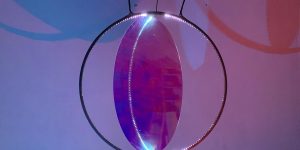
Dialogue#4 – shifting perspectives
HKU University Of The Arts Utrecht (NL)
In Dialogue#4 we talk about shifting perspectives. With several artists involved in the exhibition we discuss the aspect of “reality” and in what way art should contribute to a broader perspective on reality. Things we take for granted are maybe not what they seem, or at least there is another way of looking at them. When looking at it this way then there is no fake news as it is just another perception of reality. In a world fixed on maintaining certainty, and thus one perspective as the truth, how can artists fight against this narrow minded view on reality?

Dialogue#3 – demystifying technology
HKU University Of The Arts Utrecht (NL)
Dialogue#3 is about demystifying technology. Technology is often a black box. We have no clue what is inside the equipment we use every day. In some cases, there is even no way to open the tools we use so frequently. In what ways can we hack the technology we encounter and use every day and all day and can we give a new or different use and meaning to it? What do we learn from this process and about the way things are made and maybe should be made?

Dialogue#2 – imagining tomorrow
HKU University Of The Arts Utrecht (NL)
Dialogue#2 is called imagining tomorrow. Nobody can deny our world is in a huge transition. We live in an age of uncertainty where we are forced to rethink basically every aspect of our society from the personal to the governmental to the spiritual. We discuss with artists how they look at the responsibility of creatives when it comes to changing the world. And, is it just about exposing the problems we face or can you do more as an artist?

Dialogue#1 – data driven art
HKU University Of The Arts Utrecht (NL)
The dialogues are moderated sessions to have a more in depth look at and discussion on the underlying themes of the works at the exhibition. Dialogue#1 is about data driven art. With artists involved in the exhibition we discuss the need to make the invisible world behind technology in our society visible.
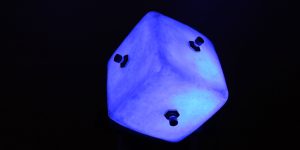
Online Exhibition NEW CONNECTIONS
HKU University Of The Arts Utrecht (NL)
The opening night will feature several live performances all related to the theme “new connections”. This for example by revisiting and passing on music traditions through electronic means, new tactile electronic instruments and an AV show performed by live coding artists.
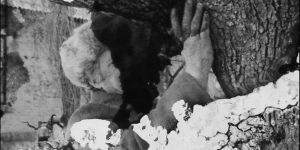
Tree of/and Life
Center for Urban History of East-Central Europe, Lviv, Ukraine (UA)
The film tells the story of a craftsman's creativity and his connection to a tree that extracts an invisible form from a material substance. The act of creating by a human being is subject to the power of the substance that governs the carver independently determining the result. The subjectivity of nature is also manifested in the film through chemical damage - images and memory are absorbed and disappear behind the veil.
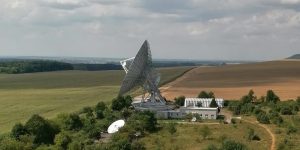
Future from the past: imaginations on the margins
Center for Urban History of East-Central Europe, Lviv, Ukraine (UA)
The Center for Urban History will make video journeys to two places, which are located in rural areas but reflect urban imagination. We will travel to the Center for Space Research and Communication of the National Center for Space Management and Testing of the State Space Agency of Ukraine.
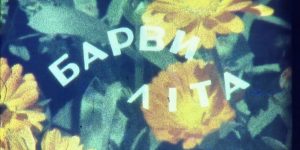
Timbres of Summer
Center for Urban History of East-Central Europe, Lviv, Ukraine (UA)
The team of curators from the Center will visit Orest Bachmaha at his house on the outskirts of Lviv to conduct an interview. In the 1970s and 1980s this person was part of a huge army of amateurs, shaped in the former USSR. But he belonged to a special circle of amateurs, such as media amateurs, who produced radios and recording machines, and worked on the margin between amateur film and video art.
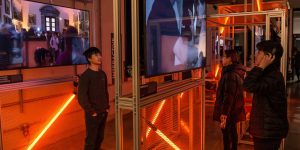
Evening in IAL hubs space
The Bartlett School of Architecture, University College London (UK)
Live performance / DJ set - The monotony of daily Zoom calls and Skype meetings is disrupted by using the video streams of participants to create colourful, live coded visuals which will be mixed and synced with live DJ sets from a selection of current Bartlett students and staff bringing a London soundscape to festival visitors. Lean back (or dance) and join us with a drink or two!

COVID-19 Crisis: How could/can society change?
Walter Ötsch, Renata Schmidtkunz, Antonia Birnbaum, Evelyn Bodenmeier, Leonhard Dobusch, Sighard Neckel
Walter Ötsch develops two scenarios for the future of society: a positive and a negative one. He will give an overview of the possible ideas for the future, both positive and negative, that were considered in the workshop. Together, obstacles and options for the future are discussed.
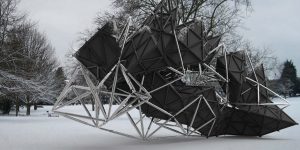
Heterotopias
The Bartlett School of Architecture, University College London (UK)
Roundtable + Q&A - As we collectively detangle our own perceived ‘normal’, how might this shape speculative design and the worlds that come with it? Is Heterotopia an alternative to the utopia/dystopia narrative?
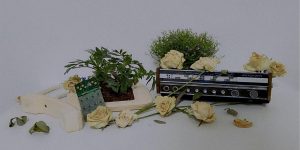
Transformation & Transmission – panel discussion, presentations
A live-streamed presentation of a new selection of works from the exhibition, with live Q&A and panel discussion with the artists. These works range from films, to AR experiences, to hybrid objects, each united by the themes of anxiety, uncertainty, and distance that run through these works. During the festival, we will conduct streamed online tours of the works, show examples, and interview the authors in a live stream hosted every day (times TBC).

COVID-19 Crisis: What options does civil society and social media have?
Walter Ötsch, Renata Schmidtkunz, Leonhard Dobusch, Evelyn Bodenmeier
We invite people from the fields of philosophy, sociology, economics and media studies to take part in a public discussion. Experts will present their views, challenge each other and offer suggestions for the future of our society.
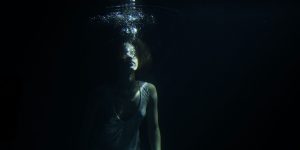
The History of Dark Matter Retold
Adeyemi Michael
Dark Matter by Adeyemi Michael It was during the DARK MATTER exhibition in Science Gallery London that History of Dark Matter Retold was conceptualised. Scientist and actress Laura-Joy Pieters collaborated with director Adeyemi Michael to produce a film that portrayed Laura’s birth and heritage. When speaking about what she wished to communicate with the film, Laura expressed that “The achievements of black women are all around us and are present throughout history, yet they are rarely ever seen or acknowledged, much like the nature of the elusive dark matter”.
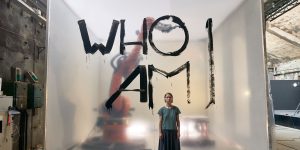
Who am I?
A human-robot performance Who Am I? is a performative art installation that traces the relationship between a robot and the human body, between programmed and spontaneous, reproducible and irreproducible. The project takes the myth of Pygmalion as a starting point and investigates the relationship between creator/creation and their perception in a world of AI. Who Am I? is based on the interaction between human and robot, by mirroring the relationship between natural and artificial as a deep meditation on human nature.
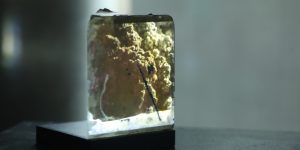
Creative Question Challenge: Can unheard signals inspire change?
Siobhán McDonald (IE), Chris Bean (IE), Adriaan Eeckels (BE)
'Let us finish what we started'. This is how the UN introduces its first Sustainable Development Goal - to end poverty in all forms and dimensions by 2030. The 17 Sustainable Development Goals and their 169 targets have been described as a sprawling, misconceived mess of grandiose intentions. The title of the development agenda itself - 'Transforming our World' - oozes utopian ambition. It was adopted by 193 nations in 2015. Five years later and with ten years left, how do you think our world will transform?

COVID-19 Crisis: Future Scenarios
Walter Ötsch, Renata Schmidtkunz, Sighard Neckel, Antonia Birnbaum
The coronavirus shock will change society and it will not be possible to return to the "normal state of affairs" we had before the crisis. Two scenarios are outlined: (1) In the negative scenario, the coronavirus shock will bring little change on the surface, but will, in fact, fundamentally reshape the political shell that surrounds capitalism. This is explained in analogy to developments after the 2008 financial crisis, in which the elites who caused the crisis were not challenged and held accountable. In this thoroughly realistic scenario, a new authoritarian form of capitalism can emerge, in which the new power for the states is also expanded into new forms of surveillance. (2) The positive scenario ties in with many historical experiences in which the world was improved after crises. We are currently experiencing a redesign of political action that contains positive moments such as new forms of talking collectively about fears, new forms of solidarity with strangers and the experience of how important and powerful politics can be. Perhaps in this scenario it may be possible to combine the corona shock with concerns about the coming ecological crises and to take effective steps to mitigate them.
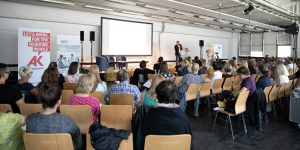
Symposium “Perspektiven politischer Bildung”
Arbeiterkammer OÖ (AT), Pädagogische Hochschule OÖ (AT)
Artificial Intelligence (AI) is omnipresent, without us always being aware of it. For many years now, it has been making our everyday lives easier, for example when cell phones are unlocked by means of face recognition or when individual advertising guides us through the jungle of the Internet. AI can manipulate us humans. Can it thus become a danger to democracy? The first signs of this apparent development were brought about by the brexite vote or the US presidential elections, for example.

FEM
Women in Art, Science and Technology
Techniques for the automatic generation of music – which have long been focused on systems ruling the score – are now being deployed at all levels of sound representation: signal, gesture, symbol, form. Sound synthesis using deep networks constitutes a radical break with conventional modelling approaches. How do composers handle these emerging possibilities?
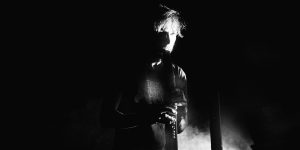
AI x Music Festival: Bot Bop Musical creation and innovation with AI
Andrew Claes (BE) and Dago Sondervan (NL)
Musical phrases are fed in real-time to a live coded machine learning model. The emerging virtual agent reacts and is again reacted to, creating an organic feedback loop. Utilising improvisational, instant composing and algorithmic musical techniques, listen to the duo becoming a trio during the course of this performance.


